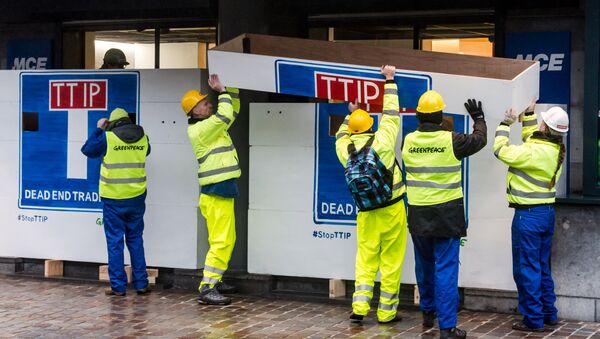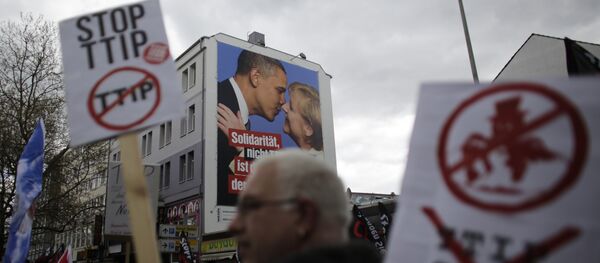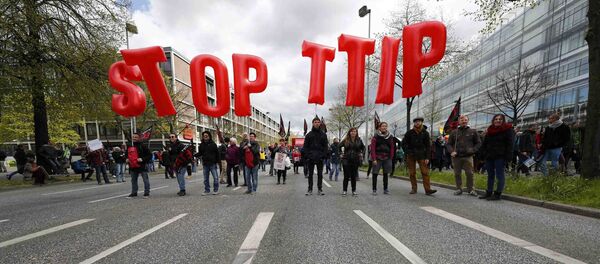On Tuesday, French Trade Minister Matthias Fekl told radio station RMC that "there is no more political support from France in the negotiations," and called on the European Commission to stop negotiations with the US.
"What France is demanding is the pure, simple and definitive halt of these negotiations," Fekl said.
On Sunday German Vice-Chancellor Sigmar Gabriel said that negotiations between the US and EU on the Transatlantic Trade and Investment Partnership (TTIP) had come to a halt, putting an end to the plan.
"In my opinion the negotiations with the United States have de facto failed, because we Europeans did not want to subject ourselves to American demands," Gabriel, who is also Minister for Economic Affairs, told German broadcaster ZDF.
However, on Wednesday an "irritated" Froman told Der Spiegel that TTIP is still very much alive, and contradicted Gabriel.
"I do not share the assessment of Minister Gabriel. The reaction from the Chancellor's office and the European Commission shows that they also see things differently. In trade talks, nothing is agreed until everything is agreed. Progress is not measured by how many negotiating chapters have been closed, but by whether both sides can find solutions to all problems," Froman said, and expressed surprise at the negative discourse around TTIP in Europe.
Froman said that TTIP negotiations have made good progress in some areas, and cited the lifting of customs duties as one area of agreement.
"We are already agreed on the elimination of 97 percent of customs duties," Froman said.
"We have agreed to harmonize the regulations and make them more transparent, and maintain high standards in health and safety, the environment and labor," said Froman, listing some of the concerns expressed about the TTIP deal.
"Time is short, but with the necessary political will in the negotiations, we believe that we can still achieve our aim of closing a very good deal this year," Froman said.
The TTIP deal has been criticized both for its secrecy, and the content of negotiations. Most of the information about the content of the negotiations has come from leaked documents and Freedom of Information requests.
In a sign of the sway of multinationals in the negotiations, one FoI request found that during the course of TTIP negotiations from January 2012 – February 2014, the EU Commission's trade department held ten times more meetings with business lobbyists than with trade unions or consumer groups.
German federal and state politicians only saw TTIP negotiating documents for the first time in January this year, when Gabriel's Ministry for Economic Affairs opened a reading room for politicians to examine them.
Critics say the deal will open the way to the privatization of public assets in the EU, because the trade deal aims to guarantee firms "market access" to sell services on both sides of the Atlantic, which would include the abolition of monopolies like national healthcare systems, or national railway networks.
Another major concern is that multinational companies could use the Investor-State Dispute Settlements (ISDS) proposed by TTIP to sue national governments if their policies cause them to lose profit. The clause can be exploited by multinationals to claim compensation from governments, even if the legislation in question protected public health.
For example, when the German government phased out nuclear power in the wake of Japan's Fukushima disaster in 2011, Swedish nuclear plant operator Vattenfall sued Germany for €3.7 billion ($4.7 billion), under the ISDS clause of a treaty on energy investments.





